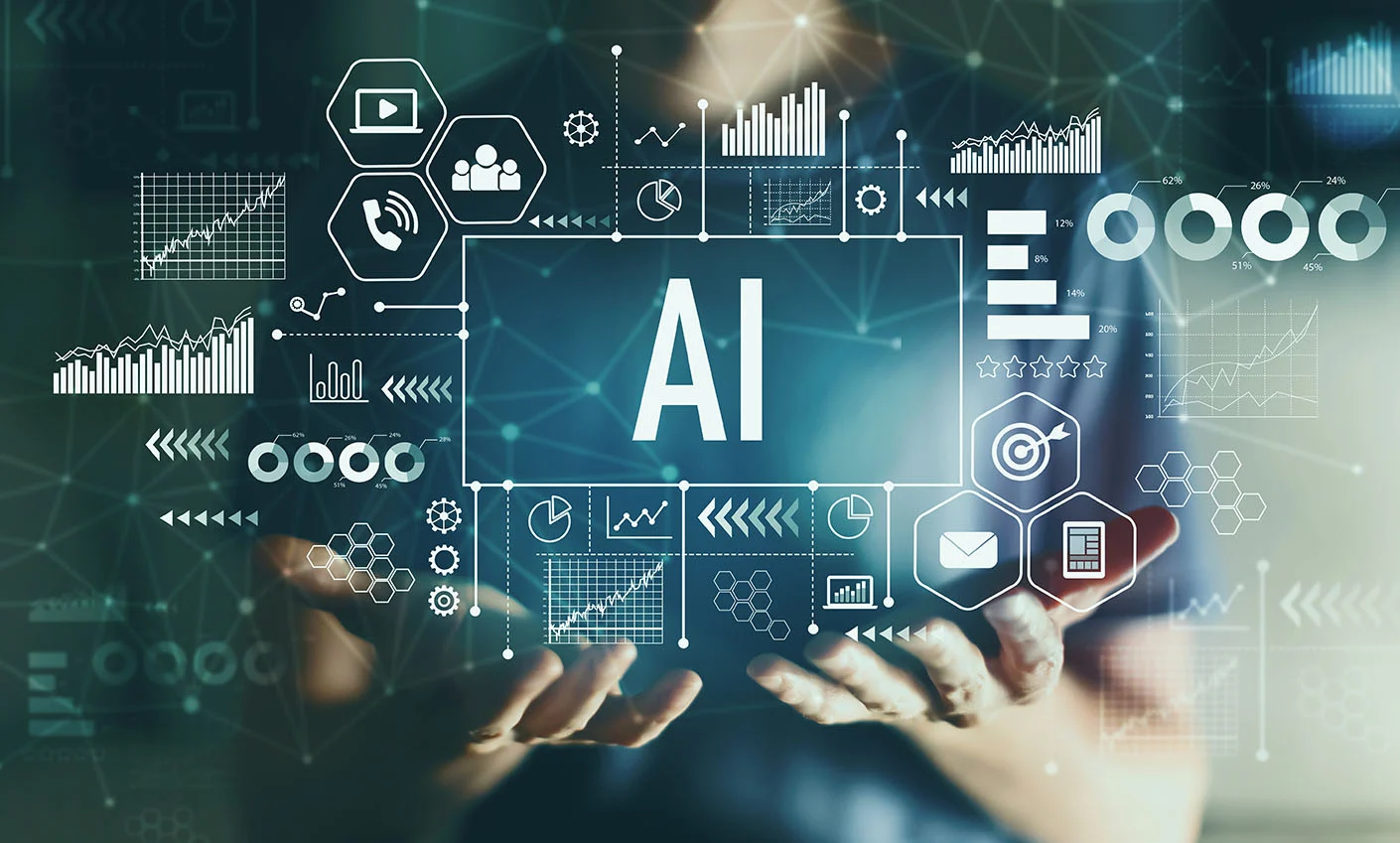The use of machine learning has become increasingly prevalent across various industries. One such industry that has benefited greatly from this technological advancement is education. Machine learning has brought about a transformative shift in student assessment systems, allowing educators to gain valuable insights into student performance and tailor their teaching methods accordingly.
In this article, we will explore how machine learning can be effectively integrated into student assessment systems, the different types of machine learning algorithms suitable for this purpose, and the role of educators in shaping these assessment strategies.
Understanding the Basics of Machine Learning in Education
To comprehend the potential of machine learning in improving student assessment systems, it is crucial to understand the basics of this technology. Machine learning refers to the ability of computer systems to analyze and interpret data, identify patterns, and make predictions or take actions without explicit programming. In the context of education, machine learning algorithms can be used to analyze student data, such as test scores, attendance records, and learning behaviors, to gain insights into their strengths, weaknesses, and learning preferences.
We at WeSoftYou, a leading software development company with a proven track record in educational solutions, have observed the immense value that machine learning brings to the table. By harnessing the power of data analysis and predictive modeling, educators can make informed decisions, identify areas of improvement, and tailor their teaching methodologies to individual student needs. From our experience, machine learning in education goes beyond mere number-crunching; it empowers educators to become more effective and student-centric in their approach.
Furthermore, the implementation of machine learning in education is not just beneficial for teachers and students but also for educational institutions as a whole. By utilizing machine learning algorithms to analyze large datasets, institutions can identify trends in student performance, predict potential dropouts, and even optimize resource allocation. This proactive approach allows schools and universities to intervene early and provide targeted support to students who may be at risk, ultimately improving overall academic outcomes.
Moreover, the integration of machine learning technologies in educational settings opens up new possibilities for personalized learning experiences. With the ability to analyze individual learning styles and preferences, educators can create customized learning paths for students, ensuring that each learner receives the support and resources tailored to their unique needs. This shift towards personalized education not only enhances student engagement and motivation but also fosters a deeper understanding of complex concepts, leading to improved learning outcomes across diverse student populations.
Key Benefits of Integrating Machine Learning into Assessment Systems
Real-Time Feedback
One of the primary advantages of integrating machine learning into student assessments is the provision of real-time feedback. Machine learning systems can process and analyze student performance data almost instantly, offering immediate insights into strengths and areas for improvement.
- Immediate Insights: Students and educators receive quick feedback on performance, which helps in timely interventions.
- Personalized Support: Feedback identifies areas for improvement, enabling personalized support for students.
This instant feedback helps students understand their progress and areas where they may need to focus more. For educators, it allows for timely interventions and personalized support, ensuring that students receive the help they need when they need it.
Adaptive Learning Experiences
Machine learning facilitates adaptive learning experiences by personalizing educational content based on individual student data. Algorithms can analyze students’ learning styles, preferences, and performance to create customized learning paths.
- Customized Learning Paths: Tailors educational content to fit individual learning styles and needs.
- Increased Engagement: Aligns learning materials with students’ strengths, enhancing motivation and effectiveness.
This approach not only enhances student engagement but also ensures that educational materials and activities align with each student’s unique needs and strengths. As a result, students are more likely to remain motivated and achieve better learning outcomes.
Predictive Capabilities
Machine learning’s predictive capabilities enable educators to anticipate student performance and potential challenges. By analyzing historical data and identifying patterns, machine learning algorithms can forecast future performance and highlight students who may be at risk of falling behind.
- Forecasting Outcomes: Anticipates student performance and potential challenges.
- Proactive Interventions: Allows educators to address issues before they impact overall performance.
This early warning system allows educators to implement targeted interventions and support strategies, thereby improving student success rates and overall academic performance.
Pattern and Trend Detection
Machine learning algorithms excel at detecting patterns and trends in large datasets that might be overlooked by human analysis. By examining vast amounts of student data, these algorithms can uncover subtle trends in learning behaviors and performance.
- Identifying Learning Patterns: Detects trends in student behaviors and performance.
- Tailoring Teaching Methods: Helps adjust teaching strategies based on data-driven insights.
Understanding these patterns helps educators adjust their teaching methods to better meet the needs of their students. For example, if data reveals that students are consistently struggling with a particular concept, educators can modify their approach to address this issue more effectively.
Administrative Automation
Another significant benefit of machine learning in education is the automation of administrative tasks related to assessments. Machine learning can streamline processes such as grading and generating feedback.
- Efficient Grading: Speeds up the grading process, ensuring timely evaluations.
- Automated Feedback: Generates consistent and timely feedback for students.
This automation not only increases efficiency but also allows teachers to focus more on providing quality instruction and personalized support, ultimately enhancing the overall educational experience.
Types of Machine Learning Algorithms Suitable for Student Assessments
Decision Trees
Decision trees are a fundamental machine learning algorithm used in student assessments. They function by mapping observations about students to outcomes based on various factors, such as test scores and study habits. Decision trees are particularly useful for identifying patterns and making predictions about student performance.
Clustering
Clustering algorithms group students based on shared characteristics or behaviors. This technique is useful for identifying similar learning needs among students, allowing educators to tailor their teaching strategies accordingly.
Neural Networks
Neural networks are advanced algorithms designed to model complex patterns and relationships within data. In the context of student assessments, neural networks can analyze intricate interactions between various factors affecting student performance.
Support Vector Machines (SVM)
Support Vector Machines are used for classifying data into distinct categories. In student assessments, SVMs can differentiate between various performance levels or learning needs based on data inputs.
Ensemble Learning
Ensemble learning combines multiple machine learning models to improve prediction accuracy and generalizability. This approach leverages the strengths of different algorithms to provide more robust and reliable predictions.
Anomaly Detection
Anomaly detection algorithms identify irregular patterns or outliers in student data. These algorithms are useful for spotting unusual behavior or performance that may require further investigation.
Tools and Platforms for Implementing Machine Learning in Education
Google Cloud AutoML
Google Cloud AutoML is a user-friendly platform that enables educators and developers to build custom machine learning models with minimal coding expertise. Its intuitive interface simplifies the process of model creation and integration into educational systems.
TensorFlow
TensorFlow is an open-source deep learning framework developed by Google. It provides a versatile platform for building and deploying machine learning models across various educational applications.
Microsoft Azure Machine Learning Studio
Microsoft Azure Machine Learning Studio offers a drag-and-drop interface that simplifies the creation, testing, and deployment of machine learning models. With its wide range of pre-built templates and algorithms, Azure Machine Learning Studio allows educators to integrate machine learning into their educational practices with ease.
Amazon Web Services (AWS)
Amazon Web Services provides a comprehensive suite of machine learning services, including Amazon SageMaker. SageMaker simplifies the process of building, training, and deploying machine learning models at scale.
Case Studies: Successful Implementations of Machine Learning in Schools
Washington School District
In a Washington school district, machine learning algorithms were used to analyze student data and identify those at risk of dropping out. By implementing targeted interventions based on these insights, the district achieved a significant reduction in dropout rates. This case study highlights the effectiveness of machine learning in early identification and proactive support for at-risk students.
Private School in California
A private school in California utilized machine learning to personalize learning experiences for each student. By analyzing learning behaviors and preferences, the system suggested tailored resources and activities. This approach led to improved engagement and academic performance, demonstrating how machine learning can enhance individual learning experiences and outcomes.
High School in New York
At a high school in New York, machine learning was employed to analyze grading patterns and student performance data. The insights gained helped teachers identify areas where students struggled the most and adjust their teaching methods accordingly. This case study illustrates how machine learning can support educators in refining instructional practices and improving student results.
University in Texas
Researchers at a university in Texas used machine learning to analyze educational data from various schools. The analysis revealed previously unnoticed patterns and trends in student learning behaviors. These insights contributed to valuable research and innovation in education, showcasing the potential of machine learning to drive advancements in educational practices.
Conclusion
Machine learning offers transformative potential for student assessment systems by providing real-time feedback, personalized learning experiences, and predictive capabilities. By utilizing various machine learning algorithms and tools, educators can enhance their teaching strategies and improve student outcomes. The successful integration of machine learning in education depends on effective collaboration between educators and technology experts, ongoing learning, and fostering a culture of innovation. Embracing these approaches will help unlock the full potential of machine learning in education, leading to more effective and personalized learning experiences for students.
Ready to enhance your online learning platform with ML? Contact us to get a quote and let’s shape the future of education together.
While machine learning brings many advantages to student assessments, it is important to recognize that it should not completely replace traditional assessments. Traditional assessments, such as exams and projects, provide a holistic view of students’ knowledge and skills. Machine learning should be seen as a complementary tool that enhances the assessment process rather than replacing it.
Ethical considerations should always be at the forefront when implementing machine learning in student assessments. Educators should be transparent and ensure that students and parents are aware of how their data will be used.
Additionally, machine learning algorithms should be regularly evaluated for bias and fairness to prevent any discriminatory outcomes. It is essential for educators to closely monitor and validate the outputs of machine learning algorithms to ensure they align with ethical guidelines.
At WeSoftYou, we specialize in developing advanced software solutions for educational institutions. Our expertise in machine learning and educational technology allows us to tailor assessment systems to the specific needs of schools and universities.
Whether you need assistance in selecting the right algorithms, implementing machine learning models, or integrating assessment platforms, our team of experts is here to guide you every step of the way. Contact us today for a free consultation or project estimation!
Educators play a crucial role in integrating machine learning by:
Participating in Design: Ensuring that assessment systems align with educational goals.
Understanding Algorithms: Interpreting machine learning insights to enhance teaching methods.
Collaborating with Experts: Working with technology specialists to implement effective solutions.
Continuous Learning: Staying updated with advancements in machine learning to leverage new technologies effectively.






















